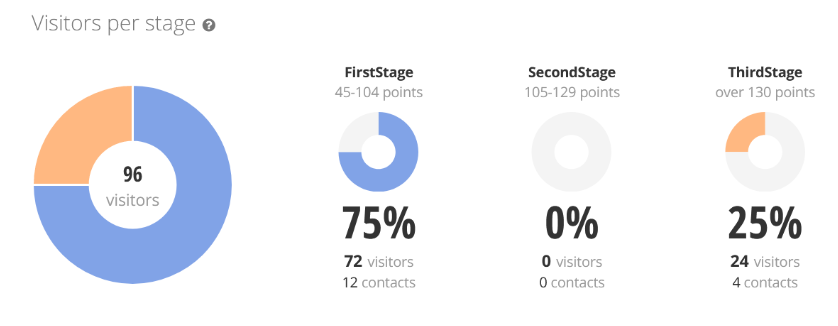Simplify Lead Management with Advanced Automation
For many businesses in the digital era, time is the most precious resource. Thus, companies constantly seek ways to streamline their operations and justify overhead costs. One area where efficiency plays a critical role is lead management. What makes a thriving business different from one trying to stay afloat is how the other efficiently manages its lead-generation efforts.
In this article, we’ll explore the power of advanced automation in lead management that revolutionizes customer acquisition. Here, we'll discuss the benefits, strategies, and tools that help your business simplify lead management and achieve remarkable results.
The Challenge of Lead Management
Understanding the complexities of lead management is necessary when planning to adopt advanced automation solutions. Traditionally, lead management involved a manual process of collecting, categorizing, and following up with leads. This process is not only time-consuming but also prone to human error.
As the number of leads grows, managing them becomes increasingly challenging. This is where advanced automation steps in to save the day.
Benefits of Advanced Automation in Lead Management
1. Time Savings
Time is the currency of business efficiency. Thirty-five percent of online marketers want to streamline their marketing and lead generation efforts. Fortunately, advanced automation can significantly enhance them while saving valuable time and resources.
By automating routine tasks such as lead data entry, follow-ups, and lead scoring, your sales and marketing teams can dedicate their efforts to what they excel at—closing deals and crafting compelling campaigns. This translates into a more streamlined workflow where human intervention is reserved for strategic decision-making, ultimately accelerating your lead conversion process.
2. Enhanced Productivity
Automation can effectively guard your leads, ensuring you do not miss an opportunity. It can intelligently distribute leads to the most suitable team members based on predefined criteria, set reminders for timely follow-ups, and even prioritize leads according to their potential.
Such a high level of efficiency guarantees you make the most of every lead that enters your funnel. Moreover, it shifts your focus to other lead nurturing tasks and retention efforts. Consequently, your teams can operate at peak productivity, bolstering your chances of converting leads into loyal customers.
3. Consistency in Communication
Building trust with potential customers hinges on delivering consistent and relevant communication. Automation empowers you to establish and maintain this consistency effortlessly. By leveraging automated personalized email sequences, you can ensure that each lead receives precisely tailored messages at the optimal times.
Furthermore, integrating an Artificial Intelligence Call Center can take automation a step further by enabling consistent and personalized communication with customers, not only through email but also through customer service automation like voice interactions, chatbots, and real-time assistance, enhancing the overall customer experience.
Such functionality streamlines your communication efforts while elevating the overall customer experience. Consistency breeds trust, a critical factor in the journey from lead to customer.
4. Data-Driven Decision-Making
Advanced automation tools serve as data treasure troves, providing valuable insights into lead behavior, engagement patterns, and conversion rates.
Suppose your business offers an MBA project management online. Through automation, you can meticulously track the online behavior of leads interested in this program—what web pages they visit, which email content resonates most, and when they tend to convert.
Using the same comprehensive data, you can refine and optimize your lead management strategy for the program, making it more effective and targeted. Informed decisions, driven by real-time data analysis, thus become the cornerstone of your lead management success.
Thanks to advanced automation tools, you can quickly identify trends, tweak campaigns, and adjust your approach precisely. Such capabilities ensure that every action is rooted in empirical evidence and tailored to the unique needs of your prospective enrollees.
5. Scalability
As your business expands, the influx of leads is a testament to your success. However, manual lead management processes might be overwhelmed by their sheer volume. Here is where automation shines. It scales effortlessly with your business growth, seamlessly handling an ever-increasing number of leads without compromising quality or efficiency.
Whether dealing with a handful of leads or thousands, your automated systems will continue to manage them with the same precision and effectiveness, paving the way for sustainable growth.
Strategies for Implementing Advanced Automation
As you have seen, the power of advanced automation cannot be overstated. To make the most out of this transformative technology, it's necessary to employ the right strategies. Here are some techniques that will revolutionize your lead management process with the help of automation.
1. Lead Capture Automation
Efficiency in lead management begins with capturing leads seamlessly and promptly. Implement automation tools to effortlessly collect and track lead sources from various channels, including your website, social media platforms, landing pages, and webinars. This proactive approach ensures that no potential lead slips through the cracks.
With automation as your ally, you can instantly capture and categorize leads, thus streamlining your lead acquisition process and minimizing the risk of losing valuable prospects.
2. Lead Scoring

Recognizing that not all leads are created equal is paramount. Employ lead scoring methodologies to assign a numerical value to each lead, reflecting their level of interest and engagement rate with your brand.
Automation is ideally suited for this task, as it tracks and analyzes lead interactions. You can instantly identify and prioritize high-value leads by automating lead scoring. This data-driven approach ensures that your sales and marketing teams focus their efforts where they are most likely to yield results, increasing the efficiency of your lead management process.
3. Personalized Email Sequences
Crafting personalized and engaging email sequences is a potent strategy for nurturing leads throughout their journey. Automation tools empower you to create meticulously tailored email sequences that align with each lead's unique preferences and behavior.
By leveraging data-driven insights, you can send the right message at the right time, delivering content that resonates with your audience. Such features help save time and enhance the customer experience, fostering stronger relationships and increasing the likelihood of conversion.
4. CRM Integration
Seamless integration between your automation tools and a robust customer relationship management (CRM) system is pivotal. This integration ensures that all lead data, interactions, and insights are consolidated in one centralized location. The result is a comprehensive view of each lead's journey, enabling your teams to track and manage interactions precisely. Consequently, it will help tailor your approach to meet each lead's evolving needs.
5. Automated Follow-Ups
Effective follow-ups are the lifeblood of lead management, ensuring that promising leads progress through the conversion funnel. Implement automated follow-up mechanisms, including email sequences, reminders, and notifications, to guarantee that leads and opportunities do not go amiss.
Automation excels in this area by systematically scheduling and sending follow-up emails, prompting timely responses, and ensuring your teams remain engaged with leads. This proactive approach keeps your leads warm, increases your chances of conversions, and ensures that no valuable prospects go amiss.
Overcoming Common Concerns
While advanced automation offers numerous benefits, some businesses may have concerns. Let us address a few common ones:
1. Loss of Personalization
One concern is that automation may lead to a loss of personalization. However, modern automation tools allow for highly personalized communication, often more so than manual methods. For this issue, you may consider automation tools that use AI for tailoring marketing efforts to individual lead’s preferences.
2. Cost
Investing in automation tools can be seen as costly. However, the long-term time and resource savings often outweigh the initial investment. Find an automation tool that scales with you to justify costs.
3. Complexity
Implementing automation may seem complex, but most tools offer user-friendly interfaces and customer support to help you get started. Choosing a service with extensive resources for troubleshooting and quick adoption is best.
From Leads to Loyalty: The Journey of Automation-Driven Growth
In the digital age, where every lead counts, advanced automation has emerged as a game-changer in lead management. It offers time savings, efficiency, and data-driven decision-making, leading to improved conversions and business growth.
As you consider implementing advanced automation in your lead management process, remember to choose the right tools, create a strategic plan, and address any concerns. With the right approach, your business can simplify lead management and achieve remarkable results. Embrace the power of automation, and watch your leads transform into loyal customers, driving your business to new heights of success.







